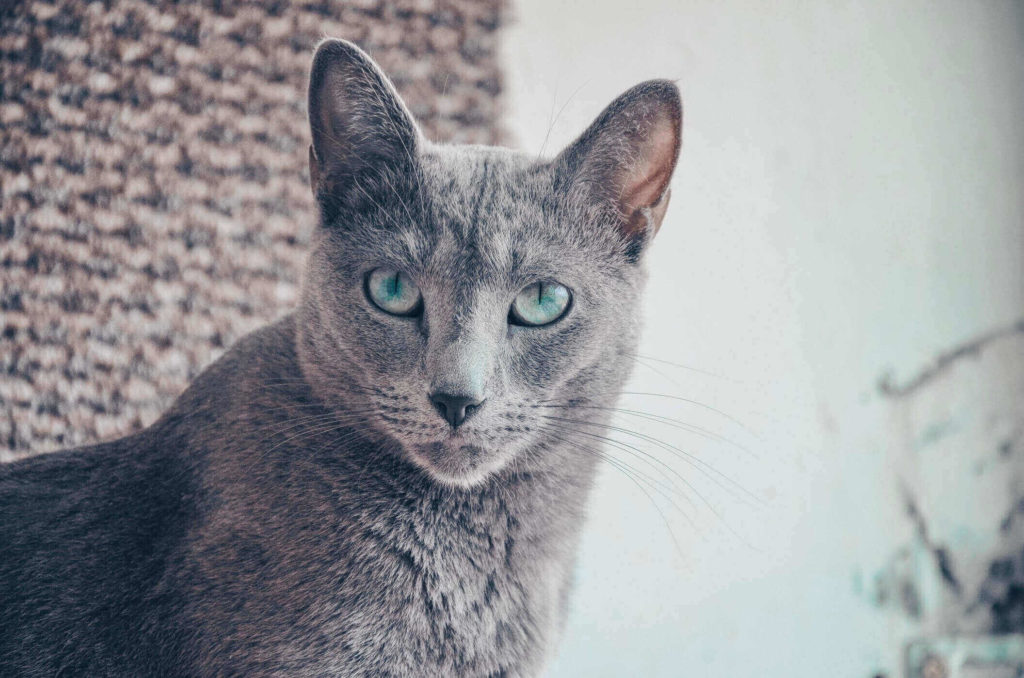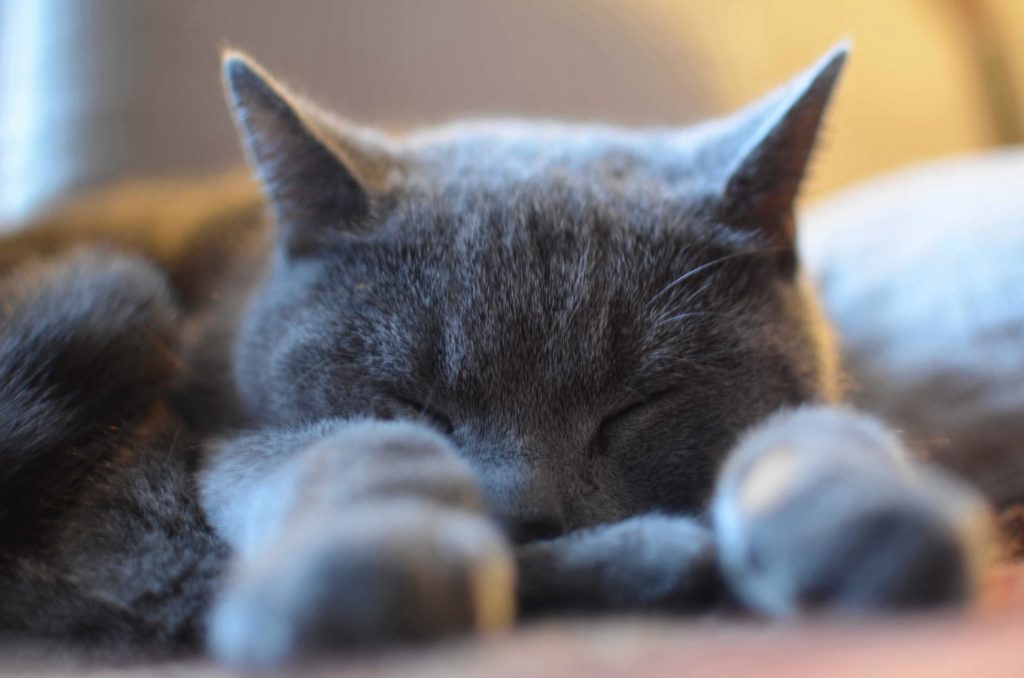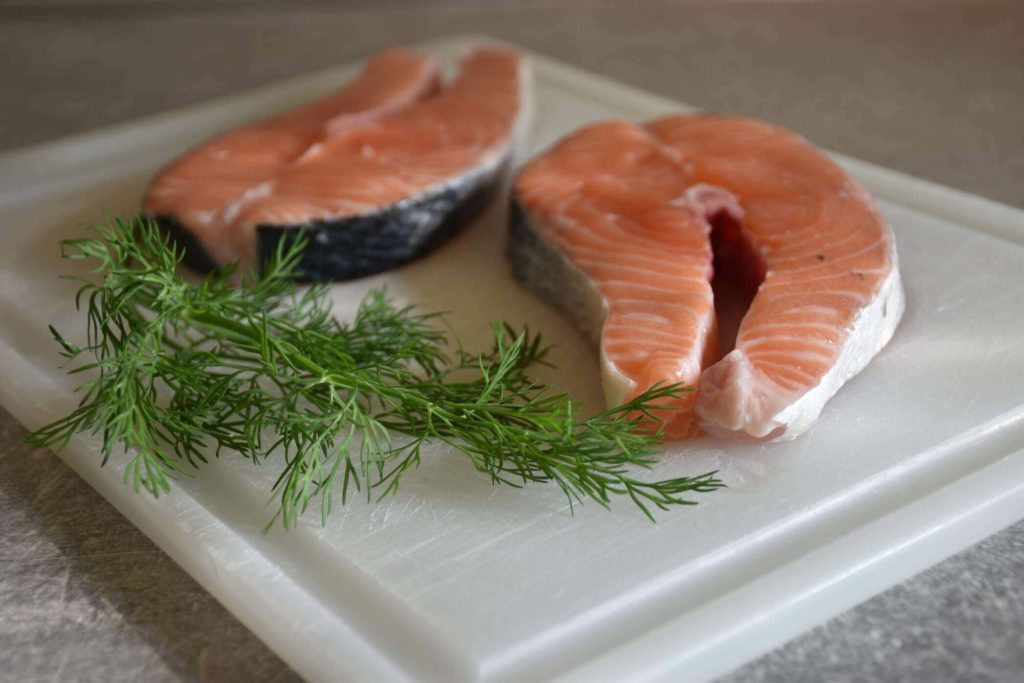You will find a lot of foods that not only satisfy the appetite of your Russian blue cat but also help to uplift their overall health. Nevertheless, some foods can make your furry friend unhealthy and sick. Milk is one of those products which is considered unhealthy for cats.
So, can the Russian blue cats drink milk? A general answer to this question is “No”. Russian blue cats, like all the other types of domestic feline breeds, are considered to be lactose-intolerant. After their weaning process, cats become unable to digest milk. But, there have been cases where cats have been able to cope with milk-based products.
Stay tuned. As in this article, I will be explaining why the Russian blue cats are not compatible with milk. Furthermore, I will also be explaining why some cats can digest milk-based products as well.
Can Russian Blue Cats Drink Milk?
In most of the global culture, cats have been associated with drinking milk in one way or the other. From the movies, cartoons to the folklores, we have been exposed to the idea of cats’ affinity towards milk.
But, the reality is far from the truth. After the completion of the weaning period in their kitten stage, the lactase enzymes in their digestive system disappears. This enzyme enables the kitten to digest the lactose present in the milk.
As your kitten gets older, it no longer requires its mother’s milk which is why their body produces less lactase enzyme to digest lactose in the milk. Due to this, cats face problems like indigestion, vomiting, and diarrhea upon consuming milk in the later stages of their life.
Your Russian Blue cat, in particular, should also be prevented with the consumption of milk. Because in specifics, due to their lack of lactase enzyme, the undigested lactose passes to their intestinal track drawing water. Furthermore, the bacteria in the colon ferments and produces volatile fatty acids.
Next, your pet begins to show symptoms of irritation to their Gi tract which includes, bloating, vomiting, and diarrhea. These symptoms can further lead to dehydration and various changes to your cat’s internal system causing probable future health problems.
So, it is highly recommended for you to consult a veterinarian as soon as your cat shows any symptoms of illness.
Are All Russian Blue Cats Really Lactose-Intolerant?
Well, as I have mentioned in the upper segments of this article, some cats have been able to handle the digestion of milk and dairy products. Now, you must be a bit confused about how some of the cats can tolerate the lactose while others can not, right?
Here’s the catch: The cats that are lactose tolerant, are somehow still able to produce the lactase enzyme in their guts even after the weaning period. Due to this, they can consume milk without any health-related problems.
Regarding cats being able to consume dairy products, some of the dairy products like yogurt, ice creams, and cheese do not contain a high amount of lactose. The microbes used in the fermentation of the milk to produce these products consume the lactose in the milk. By the time your cat gets a munch on them, they can easily digest the dairy product due to lesser contents or absence of lactose.
But, still, I recommend you to avoid providing your Russian blue cat with milk or any other type of milk product for consumption. Because for one thing, cats do not derive any nutrition from milk and dairy products. Furthermore, another thing is dairy products contain a high amount of calories which is more than your cat’s standard calorie limits of 20-30 calories per day.
What Is the Alternative To Milk For the Russian Blue Cats?
The best and the simplest alternative to milk for the Russian blue cats and all other types of cats in water. Usually, cats do not get much of the needed moisture from their food. Also, they normally do not hydrate enough as they drink only when they need really want to. This can lead to possible dehydration leading to major health problems in the future. So, you must also supervise their hydration process.
You also have other options in lactose-free milk as the alternative to milk, which is easily available in the pet stores. Furthermore, lactose-free milk not only contains less or no lactose, but it also contains fewer calories. As a result, your Russian blue can easily lick away on the lactose-free milk without any negative effects.
I recommend Cat Sip Real Milk for the Russian blues. This product is lactose-free and is made of grade A ultra-pasteurized milk containing 1% low-fat, making it ideal for lactose-intolerant cats. Also, this milk contains an abundance of taurine and lactase enzyme. Due to this, your cat will easily digest the milk without any worry about unbalanced calories.
Other Foods Russian Blue Cats Should Not Eat
Cats can be pretty picky when it comes to food. They may ignore the regular cat foods and be more attracted to foods that may not be compatible with them. As a pet parent, it is your responsibility to avoid giving or prevent your pet from having those particular types of food.
The following are the foods you prevent Russian blue from consuming apart from the milk and dairy products:
Tuna
An occasional treat of tuna for your Russian blue is fine. But, a regular diet consisting of tuna is not healthy. Because the Tuna does not consist of the required nutrients. Its daily consumption can result from tuna addiction to dangerous mercury poisoning in your cat.
Chocolate
Chocolates may be sweet and delightful to us humans, but they are quite toxic to both feline and canine pets. Because chocolates consist of theobromine and caffeine causes vomiting, diarrhea, and seizures in cats upon consumption.
Onions, Chives, And Garlic
The use of onion, chives, and garlic, or any type of their products in the food of your Rusian Blue can damage its red blood cells causing anemia. Moreover, your cat will further experience abdominal pain, nausea, vomiting, and diarrhea.
Dog Food
Dog food is not suitable for your Russian blue cat or any other breed of cat. Because dog food lacks nutrients like vitamin A, taurine, and arachidonic acid, which are mandatory in cat food.
The absence of these nutrients can cause skin issues, night blindness, lethargy, heart diseases, liver and kidney problems in the cat.
Raw Eggs, Meat, And Fish
A lot of pet parents think giving raw meat, fish, or eggs to their cat is natural and healthy. It is a false assumption because raw eggs, meat, and fish contain lots of bacterias like E.Colli and Salmonella. Upon consumption of these raw products, these bacterias can cause lethargy, vomiting, and diarrhea in cats.
Learn more in detail, what happens when Russian Blue eat raw food?
Frequently Asked Questions
Are Russian Blue Cats Hypoallergenic?
Yes, Russian blues cats are hypoallergenic. Your Russian blue has lower levels of Fel d 1. The Fel d 1 is a type of protein in the cat’s saliva and along with the secretions from their skin causes itchiness and whizzing. So, if you have allergies but still want to adopt a cat, then the Russian cat is one of your go-to breeds.
Does Russian Blue Cat Need High Maintenance?
The Russian Blue Cats are a genetically healthy breed requiring low maintenance from their owners. Their gorgeous thick coat has rare knottings and excessive grooming will only damage their fur. Weekly brushing is more than enough to maintain the beauty of their fur.
Are The Russian Blue Good At The Indoors?
Yes, Russian Blues love their indoor house surroundings. You will find these cute fluff balls following you around the house as they are very social with their owners. But, you will find them hiding from new or unknown people as they are shy. A couple of hours after, they will come to you and show you their feline hospitality.
Conclusion
The fact that milk is unsuitable to Russian blue cats and other cats, in general, has greatly surprised many pet owners. While most cats are lactose-intolerant, some of the few have been an exception due to the continuation of their lactase enzyme.
Nevertheless, these cats can be susceptible to many health problems if their owner carelessly indulges them in dairy products.
Hence, It is highly recommended for the pet owners to avoid risk by including milk or any milk-based product in the diet of your Russian blue or another breed of cat.
On the other hand, you can always use an alternative of milk that is lactose-free milk. That being said, you now have a healthy and happy Russian Blue at your house.
You are always free to share your experiences and tips in the comment section below.





